Hosts:
Dheeraj Pandey - Co-Founder & CEO of DevRev, former CEO of Nutanix
Amit Prakash - Co-Founder & CTO of ThoughtSpot, former engineer at Google and Microsoft
Summary
In this episode, Amit and Dheeraj dive into the importance of "depth" in building resilient, scalable technology companies. They reflect on Google, Amazon, and other companies that thrived by committing to foundational depth over hype, discuss the risks of superficiality in AI and engineering, and explore the significance of reliability, staying power, and the development of robust systems. From thoughtful product management to the challenges of engineering workflows, search, and AI-driven applications, this episode serves as a guide for founders and developers on what it truly takes to build a lasting company.
Key Takeaways:
Depth over Hype: Companies that commit to depth, like Google and Amazon, thrive through downturns by focusing on core technology and resilience over trends.
The Hype Cycle and Staying Power: Staying power—financial prudence and reliability—differentiates companies that endure market cycles from those that collapse.
Enterprise Lessons for AI: Like traditional software, AI agents require deep engineering and thoughtful platform development, including robust search, workflows, and analytics capabilities.
Role of Depth in System Reliability: High-quality systems depend on underlying depth in engineering, from distributed systems to accurate workflows and thoughtful search design.
Operating Systems for AI: AI agents need an "operating system" of sorts—reliable infrastructure that supports skills like search, analytics, and workflow, rather than relying solely on foundation models.
In-Depth Insights
1. Depth in Company Building: Lessons from Google and Amazon
Dheeraj discusses the identity crisis Yahoo faced compared to Google’s commitment to depth, specifically in its PageRank innovation and back-end infrastructure, including hardware and distributed systems.
Amazon's depth in understanding and building for customer experience, financial prudence, and platform reliability laid the foundation for its staying power during the dot-com bust.
Both companies went deep in areas like platform architecture, billing systems, and API reliability, which supported their scalability and reliability over time.
2. Hype Cycle, Staying Power, and the Financial Aspect of Depth
For companies in any hype cycle, staying power involves financial prudence and durability through the “valley of disillusionment.”
Companies need a balance of depth in engineering, long-term vision, and resource management to weather cyclical downturns.
Depth in cash flow management and operational discipline enables companies to make the trade-offs that deliver sustained innovation and competitive advantage.
3. Depth in Engineering: The Case for Reliable, Context-Rich Systems
Both hosts emphasize the need for reliability as a foundation for scaling. Engineers need to focus on correctness, which builds user trust before prioritizing speed.
Amit shares how ThoughtSpot prioritized reliability, relevance, and low latency to build a scalable BI platform, emphasizing distributed systems and database design to maintain high performance and resilience.
They discuss how enterprises need foundational elements like distributed databases and custom indexing to support AI's full potential.
4. Applying Depth to AI Development: Building an AI Agent OS
Amit and Dheeraj highlight the importance of foundational elements—what Dheeraj calls the “AI Agent Operating System”—which provides essential support like reliable search, workflow engines, and analytics.
They caution against the temptation to build AI solutions without well-designed operating systems, as fragile solutions lack scalability and robustness.
Examples include AI-specific skills, such as advanced contextual search and workflow handling. Companies must balance using LLMs with traditional IR methods to improve retrieval accuracy, efficiency, and specificity.
5. Redefining AI Depth: Workflows, Search, and Analytics
Search: Embeddings are valuable for semantic search, but traditional search methods (like inverted indices and constraints) are still vital for creating depth in AI search skills.
Workflows: Effective workflows require a well-designed engine to accurately translate context, allowing AI agents to perform actions and minimize reliance on LLMs to “guess” the next action.
Analytics: Database systems are essential; treating an LLM as a database is unreliable. Instead, AI should operate with robust analytics tools as specialized components in a broader, integrated system.
Host Biographies
Amit Prakash
Co-founder and CTO at ThoughtSpot, previously at Google and Microsoft. Amit has an extensive background in analytics and machine learning, holding a Ph.D. from UT Austin and a B.Tech from IIT Kanpur.Dheeraj Pandey
Co-Founder and CEO of DevRev, and former CEO of Nutanix. Dheeraj has led multiple tech ventures and is passionate about AI, design, and the future of product-led growth.
Episode Breakdown
{00:00:00} Reflections on Yahoo vs. Google: Amit reflects on the Yahoo vs. Google postmortem and Google's engineering depth.
{00:01:16} Discussion on Conferences and Design: Effortless design and AI integration in conferences.
{00:03:00} Depth in Product Management During Hype Cycles: Exploring the role of depth in managing products effectively.
{00:07:00} Comparing Google and Amazon’s Strategies: Deep engineering and company-building approaches.
{00:08:40} Amit’s Experiences at Microsoft and Google: Challenges in distributed systems.
{00:13:00} Lessons from AI’s Hype Cycle: Insights from navigating previous hype cycles.
{00:15:42} Engineering Depth at Bing: Quality vs. latency trade-offs.
{00:18:17} Distributed Systems and Linux at Google: The value of technical systems at scale.
{00:22:00} Technical Bets and Challenges at ThoughtSpot: Lessons from building deep systems.
{00:30:41} Balancing Correctness, Reliability, and Latency: Striking the right balance in building systems.
{00:37:00} The Paradox of Engineering Depth vs. User Experience: How to reconcile technical depth with usability.
{00:47:00} Depth in RAG (Retrieval Augmented Generation): Exploring contextual search with depth.
{00:52:00} Workflow Design: The importance of a robust workflow engine.
{00:56:00} Analytics, LLMs, and Purpose-Built Solutions: Why purpose-built approaches matter.
{01:06:00} Staying Power and Financial Prudence: The role of engineering in surviving hype cycles.
References and Resources
Distributed Systems and Engineering Depth
Linux 2.2 and MySQL: The Evolution of Linux.
Google’s Spanner and Dremel: Read about Google Spanner.
ThoughtSpot Innovations
LLVM in Databases: Exploring LLVM and Databases.
Enterprise Search Challenges: Improving Enterprise Search.
Broader Lesson
Gartner Hype Cycle: What is the Hype Cycle?
Depth in engineering, product management, and customer experience is what sets durable technology companies apart. This episode illustrates how depth shapes the competitive edge, from Google and Amazon’s rise to modern challenges in AI. As new technologies emerge, the importance of foundational work, infrastructure, and operational stability will only grow, serving as a roadmap for leaders navigating the current AI landscape.

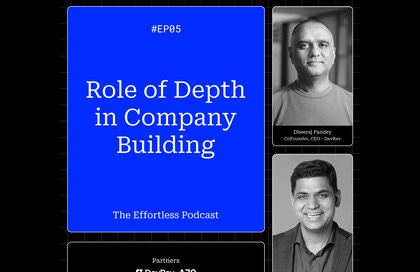

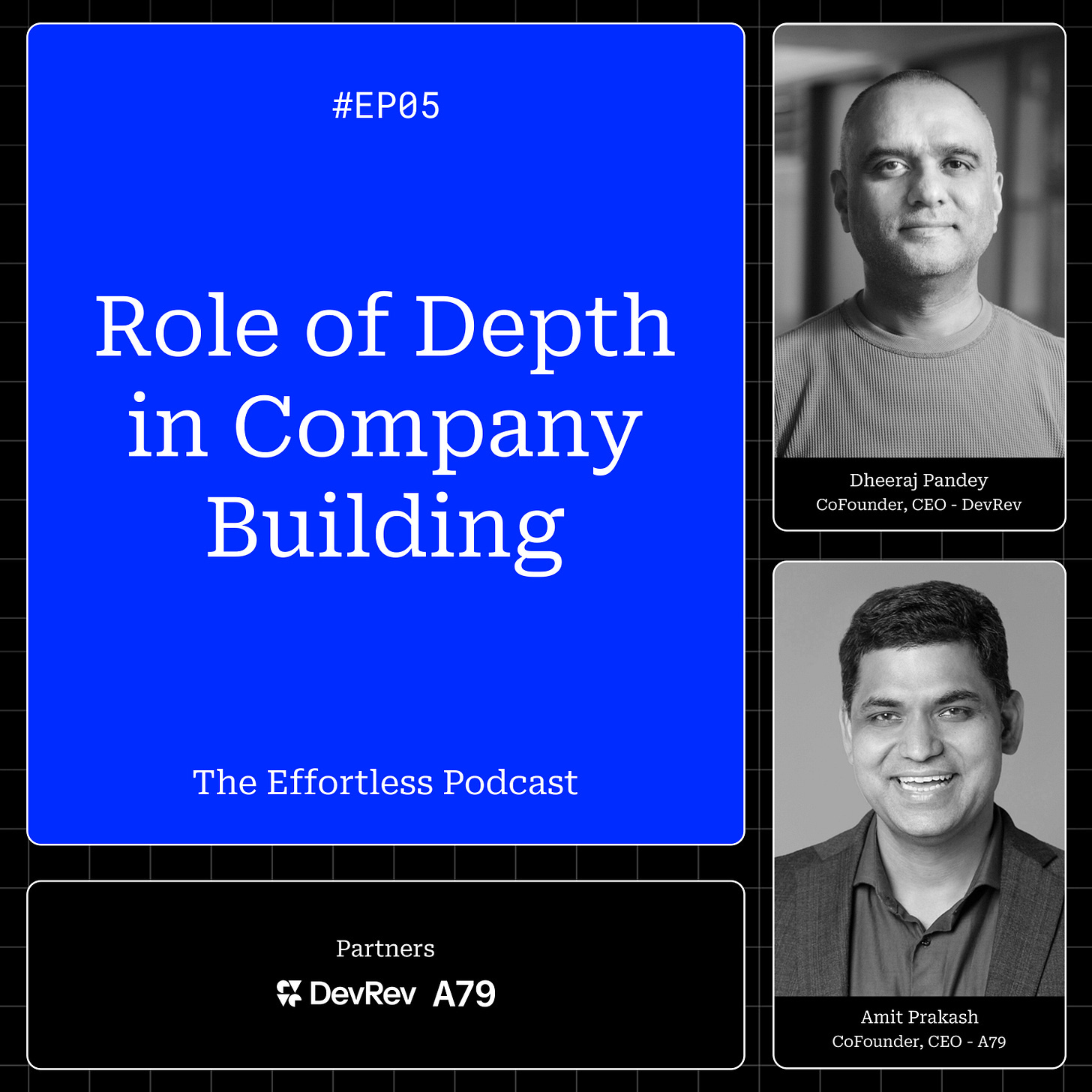



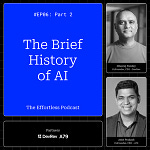
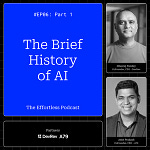
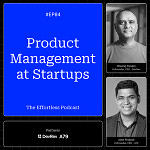
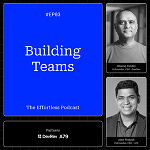

Share this post